When it comes to preparing baby formula, the safety and health of your little one is undoubtedly the paramount concern. One frequently debated question by caregivers is the kind of water that should be used.
In this comprehensive piece, we explore the pros and cons of using distilled water for baby formula preparation. While some parents swear by its purity, others raise concerns about its lack of natural minerals. We will dive deep into scientific studies, expert opinions, and practical considerations to provide a balanced view.
From understanding the distillation process to considering potential alternatives, we aim to equip you with all the information you need to make the best decision for your child’s health and wellness. Whether you’re a new parent or an experienced caregiver, this article promises to shed light on this important aspect of infant care.
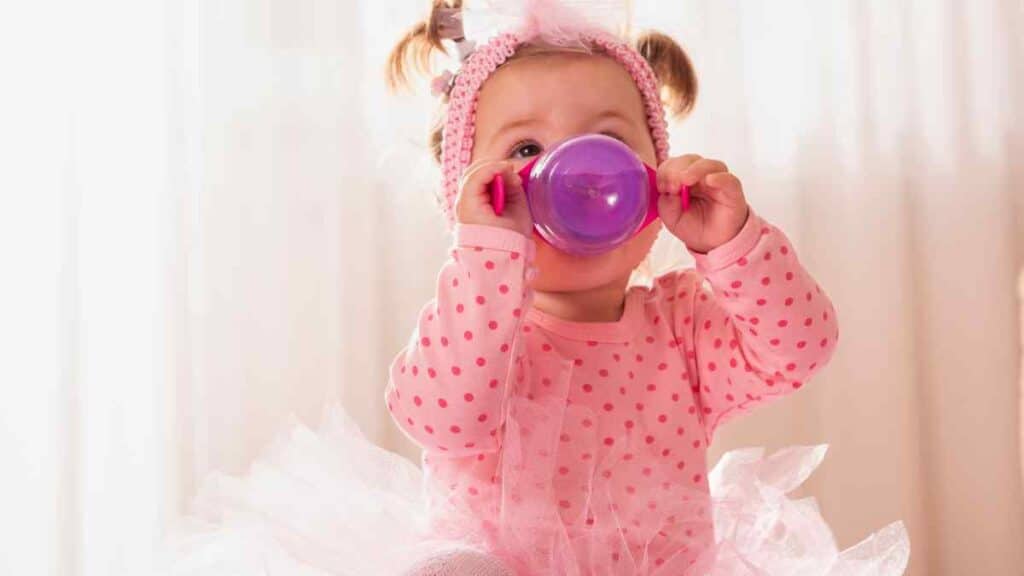
Understanding the Distillation Process
When it comes to preparing a baby’s formula, one of the most important considerations is the type of water you use. The safety of tap water, the credibility of bottled water, the pros and cons of purified water and distilled water – all these are critical questions caregivers have. But to answer these questions, we first need to delve into understanding the distillation process, which has a significant impact on the type of water – distilled or purified – we choose for baby formula.
The distillation process involves heating water to its boiling point, turning it into steam, and then cooling the steam back into the water in a separate chamber. This process separates water from its impurities, as most contaminants do not evaporate. As a result, distilled water is one of the purest forms of water available.
The Difference Between Distilled Water vs. Purified Water for Baby Formula Feeding
But what is the difference between distilled water vs. purified water? In essence, all distilled water is purified, but not all purified water is distilled. Purified water goes through other filtration methods, like reverse osmosis or carbon filtering, which remove impurities but may not be as thorough as distillation.
So, should you use purified or distilled water for baby formula? Both are generally safe options, as they have undergone processes to remove harmful contaminants. The primary concern with using distilled water for babies, as some parents might wonder, is its lack of natural minerals due to the distillation process. However, since most baby formulas are fortified with necessary minerals, this is less of a concern.

Can Babies Drink Distilled Water by Itself?
“Can babies drink distilled water by itself?” is another common question. While it’s safe in small amounts, it is not recommended as the primary drink for babies because of its lack of minerals and potential to disrupt electrolyte balance.
On the other hand, purified water for babies is also safe, provided it is from a reliable source. The same goes for distilled water, whether it’s nursery water vs distilled or generic brands, as long as it meets safety standards.
One thing to look out for is water that is fluoride-free or has reduced fluoride. High levels of fluoride can be harmful to infants, leading to a condition known as fluorosis. That’s why caregivers often look for fluoride-free water or baby water without fluoride for baby formula. The good news is that distilled water has very low fluoride levels due to its distillation process, making it suitable for baby formula.
How Distillation Affects Water Purity
Distillation is a simple but effective process that boils water, converts it into steam, and then cools the steam back down to form water in a separate container. This process removes impurities, as they generally don’t evaporate with the water. As such, distilled water is often considered one of the purest forms of water, free from most contaminants found in tap water or even some bottled water.
A common concern when using distilled water for babies is the absence of natural minerals lost during distillation. However, this is less of an issue for mixing formula as most infant formula is already fortified with necessary minerals.
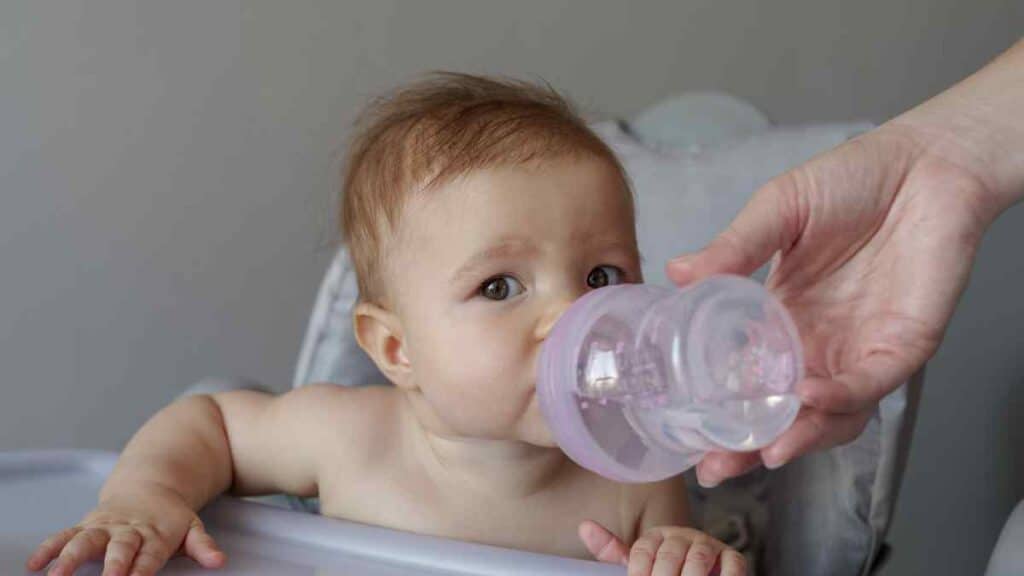
One aspect to consider is the presence of fluoride in the water used to prepare infant formula. While fluoride is beneficial for dental health, too much fluoride can lead to a condition called fluorosis, causing faint white lines or streaks on a child’s teeth. Hence, using fluoridated water for infant formula can sometimes lead to an excessive fluoride intake, especially if the baby’s primary source of food is formula. Distilled water, on the other hand, due to its distillation process, has very low fluoride levels, making it a safe choice.
Alternatives to Distilled Water When Making Baby Formula
The choice of water is an essential aspect of preparing baby formula, and while distilled water is a popular option due to its high purity, caregivers have several alternatives. Understanding these options and the potential benefits and drawbacks of each can be key to making an informed choice that best suits your infant’s needs.
Tap Water
Most tap water is perfectly safe to use for baby’s formula. It’s conveniently available and economical. However, the quality of tap water can vary significantly based on your location. It’s crucial to check your local water quality reports to understand what’s in your water. If the tap water is hard, it might contain high levels of minerals, while soft water may have added sodium. In some cases, you might need to use a water filter to remove any potential impurities. Boiling tap water for one minute and letting it cool is another method recommended by the Centers for Disease Control and Prevention (CDC), especially for infants [1].
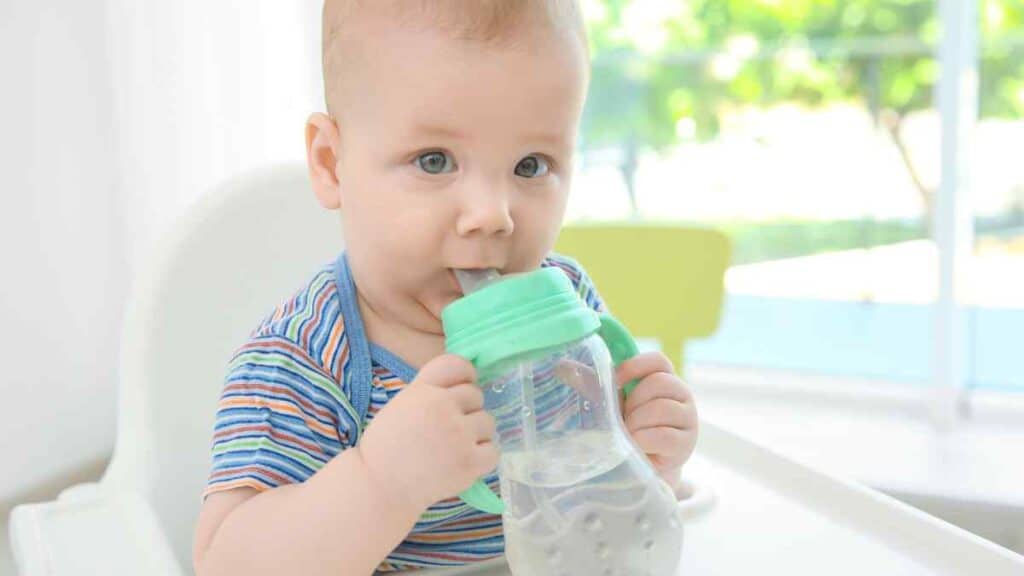
Bottled Water
Bottled water is another option, but not all bottled water is created equal. Purified bottled water has undergone various purification methods to remove impurities and might be an excellent choice for mixing baby formula. Look for brands that have low levels of fluoride.
Spring Water
While spring water might sound healthy due to its natural origins, it’s important to note that it can sometimes contain high levels of minerals. Since most powdered formula is already fortified with minerals, using spring water could potentially lead to an excessive intake.
Filtered Water
Many families opt to use filtered water systems. These units can remove impurities and lead from tap water, providing pure water for the family, including mixing baby formula. It’s important to maintain these systems according to the manufacturer’s instructions to ensure they operate effectively.
Nursery Water
Nursery water is another alternative to distilled water. It is usually marketed specifically for infants, with or without added fluoride. If your infant is primarily fed with formula, the American Dental Association recommends using fluoride-free water to prevent excessive fluoride intake, which could lead to fluorosis.
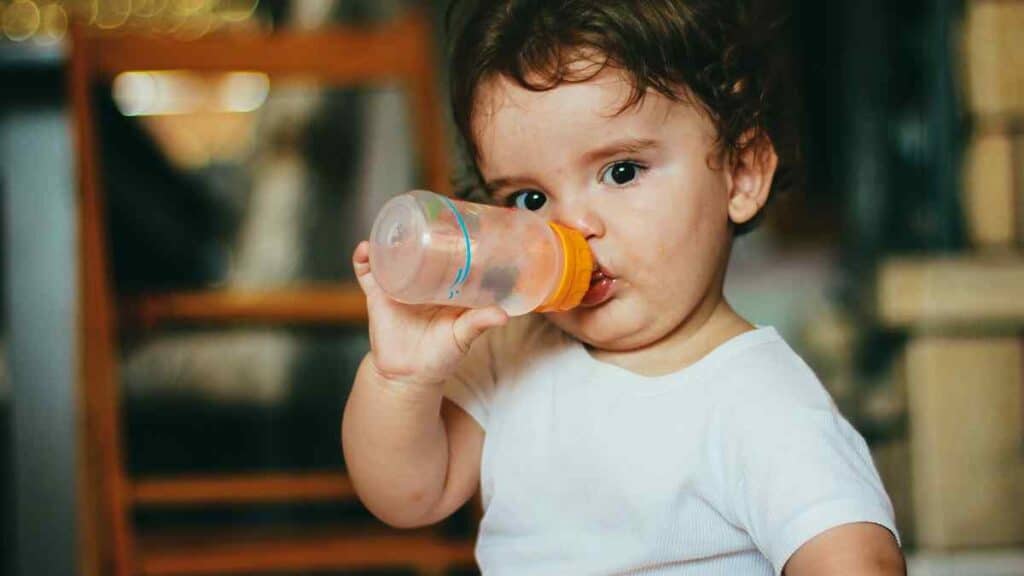
Boiling Water
Despite all these alternatives, sometimes the simplest option can be the best. For example, boiling water (even bottled or distilled water) is often a recommended step for caregivers, particularly when preparing formula for newborns or immunocompromised infants. Boiling for at least one minute kills most types of disease-causing organisms and is recommended by several health organizations worldwide.
Practical Considerations When Choosing The Right Water for Baby’s Formula
While the use of distilled or purified water is common, there are many other practical considerations to keep in mind. From checking local water quality reports to choosing a water filter and properly handling and storing water, every step is crucial in ensuring your infant receives safe, healthy nutrition.
A. Checking Local Water Quality Reports
The quality of your local tap water can significantly impact the kind of water you choose for making formula. These reports can help you identify possible contaminants in your water supply, such as high levels of lead, bacteria, or additional fluoride. Depending on the report, you might choose to use tap water, or you might opt for alternatives like distilled, purified, or bottled water. However, if you decide to use tap water for powdered formula, it’s advisable to bring it to a rolling boil for one minute to kill any bacteria, and then let it cool before using it.
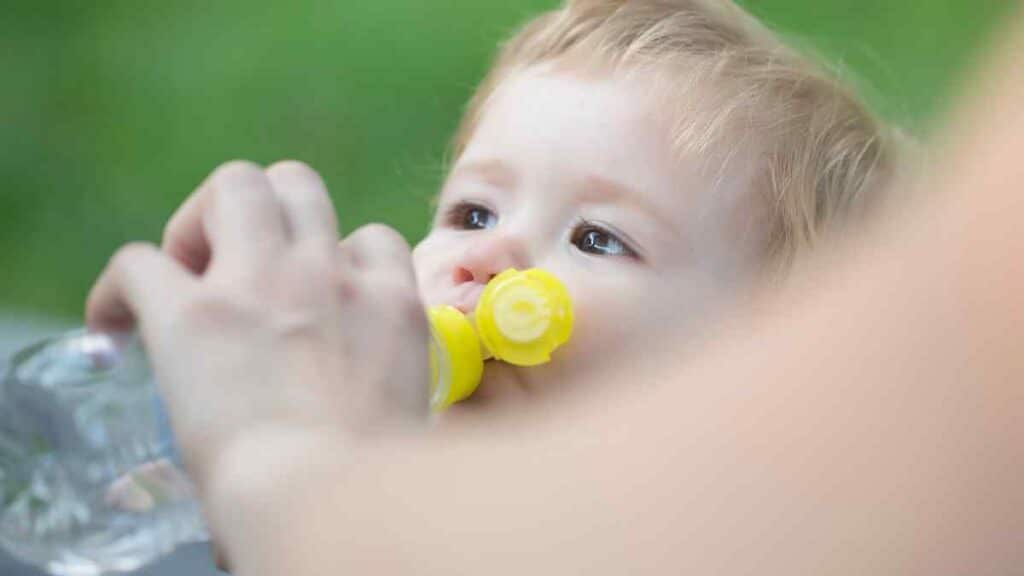
B. Choosing a Water Filter
Investing in a water filter is another excellent option. It’s crucial to select a filter that effectively removes potential contaminants found in your local water supply. Some water systems even offer soft water, which has extra minerals removed. However, not all filters are the same, so it’s essential to choose one that meets your specific needs. Keep in mind that some formula makers come with built-in filters, offering additional convenience.
C. Proper Handling and Storage of Water
Once you’ve chosen the right water for your baby’s formula, how you handle and store it is equally important. Boil distilled water, or any water you use, before making the formula to ensure it is free from bacterial infection. Remember, even purified water can get contaminated if not handled properly. Once the formula powder is mixed with water, it’s essential to store it properly in the refrigerator and use it within 24 hours to avoid the growth of bacteria. Never dilute the formula with extra water, as this could lead to water intoxication, a serious condition for infants.
Moreover, while fluoride is essential for dental health, too much of it can cause dental fluorosis. Hence, if your baby is primarily fed with formula made with fluoridated water, fluoride supplements are not necessary.
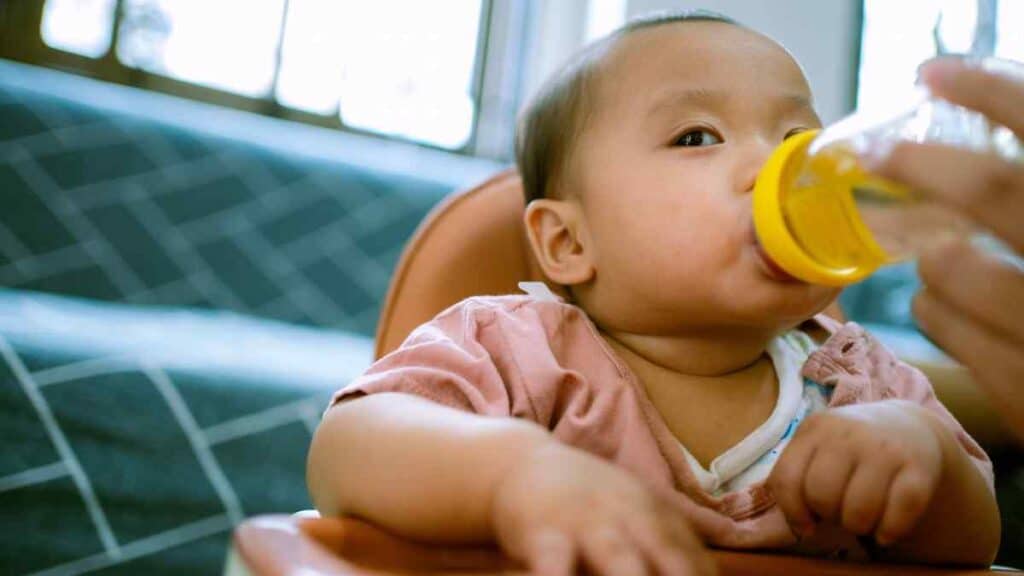
Conclusion
In conclusion, the decision to use distilled water for baby formula involves weighing various factors, including purity, mineral content, availability, cost, and your baby’s specific needs. While distilled water is an excellent choice due to its high purity levels, alternatives such as purified water, filtered tap water, or boiled water can also be viable options depending on your circumstances.
It’s crucial to remember that every baby is unique, and what works for one may not work for another. As a caregiver, your knowledge and understanding are crucial in making the best decision for your baby. Don’t hesitate to consult a healthcare provider with any concerns or uncertainties.
Ultimately, the goal is to ensure your baby receives safe, clean water that optimizes their health and well-being– whether distilled water or another type, the best water for baby formula is always the one that best meets your baby’s needs.
We hope you’ve enjoyed this article! If you have any questions, please feel free to leave a comment below.



